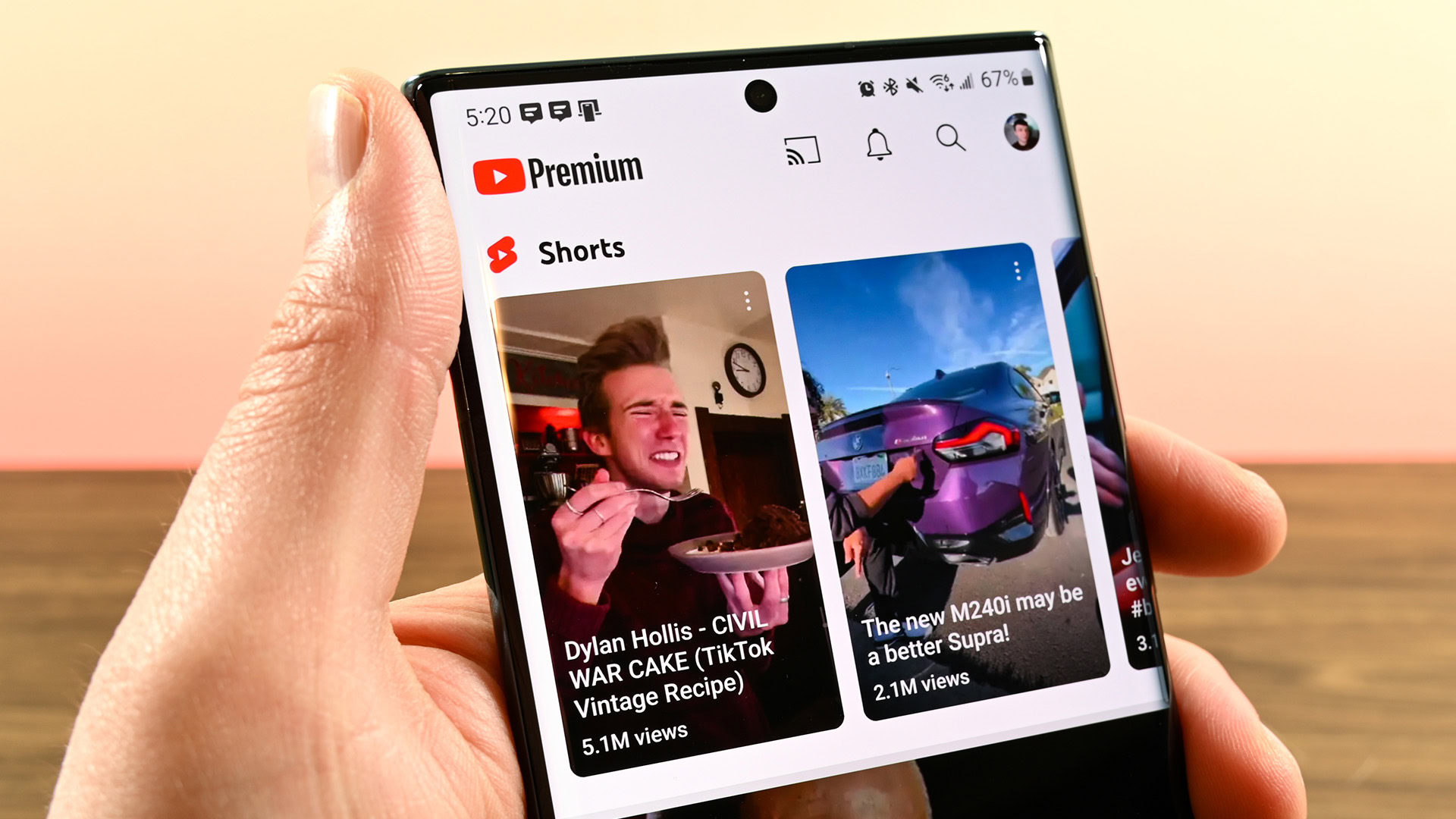The experts here at PCMag have tested tons of SSDs and hard drives—both internal and external. They’re measured against various benchmarks for important factors like read and write speed as well as safety features like encryption. You can trust our recommendations with your data and best of all you can save some money while you’re at it!
If you’re like me and you have more photos and videos of your cats (or other beloved pet or person in your life) than you’ll ever realistically look back at, then you’d probably still be crushed if anything happened to even one of them. Sure, your phone can be backed up to a cloud based storage like Google Drive, but services can go offline and mistakes can happen. One trusted form of backup for those important files and photos is on an external HDD or SSD. The main questions you have to answer are how much storage you need, how quickly you need it to transfer, how durable you need your drive to be, and how much you want to spend.
SSDs
SSDs (solid-state drives) differentiate themselves largely based on their speed: They make almost everything quicker, from starting apps to copying files to pulling up those files in a flash. Another benefit: These drives are less prone to failure due to a lack of moving internal parts. The downside? Because SSD technology is much newer and chip prices are ever-increasing, you might pay up to 10x more per TB for the speed and reliability of an HDD.
The Samsung 990 Pro 2TB M.2 NVMe Gen4 SSD has lightning fast read speeds of up to 7,450MB/s and write speeds of 6,900MB/s. This SSD is PCle Gen4 and is compatible with PC as well as PS5—though you’ll need the heatsink model to use it for the latter. Simply slot it in and you’re ready to roll.

Pocket-sized and portable, the Samsung T7 external SSD delivers read/write speeds of up to 1,050/1,00 MB/s. The 2TB capacity will hold tons of content from class projects to important work documents with space left over for music, videos, and more. You can even set up a password with the embedded software to further protect your data and this SSD is compatible with PC, Mac, and Android mobile devices. Our reviewer gave it high marks for its small size and secure hardware encryption.
HDDs
When looking at an external HDD (hard disk drive), you’ll find that these are generally cheaper than SSD (solid-state drives) but this comes at a trade-off of speed and durability. Thanks to the moving parts and spinning discs of an HDD, these are more likely to fail over time and be slower in terms of data transfer as well.
If you’re comfortable opening up your desktop computer tower and making a few connections, an internal HDD is going to be the best, most cost-effective way to add extra storage and backup space. If you’re looking for a quick and simple storage solution, an external drive is your best choice to quickly back up your data.
Recommended by Our Editors

The SanDisk Extreme Portable SSD V2 is aptly named due to its hardy build. Dust resistant, water resistant, and drop resistant up to 2 meters, this portable SSD has read speeds of up to 1050MB/s and 1000MB/s write speeds. It comes in capacities of up to 4TBs and includes password protection featuring 256-bit AES encryption, ensuring that no matter the amount of files you have on board, they’ll be properly safeguarded. Our expert gave the SanDisk Extreme Portable SSD the Editors’ Choice Award for its reasonable price, durability, and quick read and write speeds.

With a whopping 18TB of storage capacity, this Western Digital Elements has enough space for all of your files—and then some. Compatible with both Windows and gaming consoles, this device is perfectly suited for backing up data or even everyday computing. You can also use this device with a Mac, though you’ll need to reformat it first.
More Storage Deals
*Deals are selected by our commerce team
Even More Storage Deals to Consider
-
Storage Deals on Amazon: SSD/HDD
-
Storage Deals on Best Buy: SSD/HDD
What’s Better: An External SSD or an Internal?
The benefits of an internal SSD drive are the same as the external one: They’re fast, they use less power, have no moving parts, and they’re whisper-quiet. The downsides are the same: For those benefits, you’ll be paying a lot more per TB of storage. That said, prices on internal SSDs seem to be more accessible than the external devices, so adding a terabyte or two is more achievable for a little extra effort.
Internal SSDs come in two types: the M.2 style or the 2.5-inch drives that slot into your desktop. As long as you’re going to be opening up your device to install these, you should get the most storage you can at once, so spend a few extra bucks to add at least 1TB. Most users will find that to be plenty of space for photos, videos, and music. If you’re a power content creator or a gamer, you’re probably looking in the 2TB-8TB area for your usage.
An external SSD is easy to use: Plug it into your device with a USB or Thunderbolt connection and you can instantly have terabytes upon terabytes of storage and backup options. The simplicity and speed of these drives, however, will cost you.
What is the Benefit of Using an SSD Over an HDD?
SSDs tend to be faster and, thanks to the lack of moving parts, more reliable over time than an HDD.
How Does PCMag Test SSDs/HDDs?
As with any other product, SSDs and HDDs are given a rigorous evaluation. Using a Windows-based storage testbed, both devices are put through their paces, and performance is measured against the PCMark 10 Full System Drive benchmark for SSDs and the PCMark 7 Secondary Storage test for HDDs.
Find out more about the process for SSDs and HDDs, respectively, in their associated articles.
How Much Should I Pay for an External Hard Drive?
You can pick up a decent external hard drive for as low as $74.99. The best way to gauge relative value among similar portable drives is to calculate the per-gig price by dividing the cost of the drive in dollars by the capacity in gigabytes.
Are Cheap External Hard Drives Worth It?
As with most purchases, you pay more for more features. You pay a premium for a secure hard drive, for example, but that extra level of security means that your data won’t be stolen. The cheaper the drive, the less features it will have, so if your data
Are SSDs Getting More Expensive?
It’s actually cheaper to buy an SSD than it was a few years ago, but an HDD—whether internal or external—will typically be cheaper and have higher capacity. There are pros and cons to either format, which you can read about in the preceding link to decide which is the best fit for you.
Unlock Exclusive Deals on the Latest Tech Products
This newsletter may contain advertising, deals, or affiliate links.
By clicking the button, you confirm you are 16+ and agree to our
Terms of Use and
Privacy Policy.
You may unsubscribe from the newsletters at any time.

About Karl Klockars

Read the latest from Karl Klockars
About Jade Chung-Lee
Merchandising Associate












